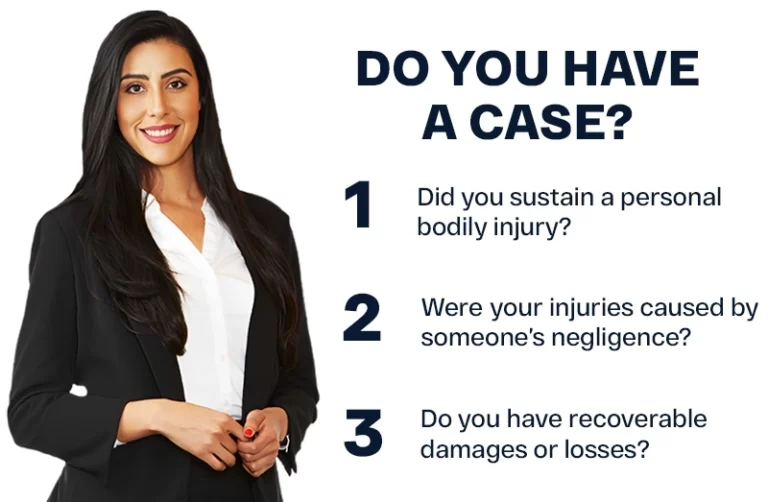Table of Contents
Social media has become an integral part of modern life. These networking platforms provide sufficient space for everyone to share their experiences, catch up with old friends, post pictures, and share various types of digital content.
You May Be Asking Yourself — What Does Social Media Have To Do With My Case?
Your social media presence may influence various elements of your case. If you are pursuing a personal injury claim, it is because you have suffered an injury and other types of damages related to different kinds of accidents. You may be able to seek compensation for your medical-related costs, lost income, pain, suffering, and other relevant damages based upon the specific laws of your state. It is perfectly normal for you to turn to social media and share some experiences related to the suit or accident with fans, friends, followers, or family.
However, it’s important to be aware of the consequences of doing so. Your social media posts may be used against your case, so exercise caution in what you share. Be thoughtful and deliberate about your online activity, and consider consulting with your California accident attorney for legal guidance.
5 Ways That Social Media Can Negatively Impact Your Car Accident Injury Claim
When you are pursuing an accident claim, it’s easy to overlook how social media activity might affect your case. Consulting a personal injury attorney can help you understand how to safely manage your online presence while your case is pending.
1. You May Accidentally Oppose Your Testament
The information in your social media posts might contradict your claim. For instance, you might have said you have a broken arm. However, your recent social media activity can reveal that you were bowling. In this case, the defense can challenge your injuries. Keep in mind that if you suffered an injury, whether at work or in a car accident, it’s essential to provide honest and accurate information in your claim. Facebook posts and other social media details that contradict your claim may harm your case.
2. Questionable ‘Check-ins’
Check-ins on Facebook, Yelp, and other social media platforms can reveal that you were participating in activities that appear inconsistent with the injuries you’ve reported. For example, you said that you suffered a damaged leg (restricted movement), and then you signed up for your routine yoga or a dance class. The defense can use social media posts as evidence against you.
3. Your Posts Could Tell a Different Story About Your Injury
Your social media content can unintentionally reveal to the defense what you are physically capable of, even after your injury. For example, if you share a photo of your children on a ski hill, the defense might argue that you took the photo yourself, suggesting you were present and physically active. Even ordinary posts can be misinterpreted and used to challenge your claim. In short, what you share online can affect your case in ways you may not anticipate.
4. Rants, Comments, Posts, Or Feedback From Friends And Family
The social media activity of your friends and family can also harm your case. They may unintentionally post or comment about your injury, the compensation you are seeking, or activities that contradict your version of events. Even well-meaning remarks can be taken out of context and used to undermine your credibility or weaken your evidence.
5. Social Media Arguments In Court
A seemingly harmless social media post or rant can complicate your claim. You and your personal injury lawyer may be required to attend additional court hearings to determine if you need to provide your social media records for the defense. Keep in mind that changing your privacy settings, such as marking your account as “friends only” or setting it to private, does not protect your posts from being used as evidence in court.
Here’s How To Cautiously Stay Active On Social Media
If you are planning to file an accident claim, avoid sharing any details about your personal injury case on social media. If you need to use these platforms, limit your activities to liking other individuals’ posts and perhaps sharing news content. In case you want to see what other people are saying about you, think about searching Google for your name.
It is also important to request that your family, colleagues, and friends refrain from discussing anything related to your case. It is often advisable to limit your activity on all social networks until your personal injury case is resolved. Remember that the opposing side may be monitoring your activity, and anything you post or communicate online could potentially be used against you in court.
Speaking to an accident lawyer early can help you avoid unintentional missteps. They can guide you on what is safe to post and how to protect your rights throughout the claims process.
Contact A California Accident Lawyer For Legal Guidance
Handling a personal injury claim can be overwhelming, especially if it is your first time dealing with a legal matter of this kind. You aren’t, however, alone. An experienced personal injury attorney can help you understand your rights and options. They can carefully assess the damages available for your case before pursuing a settlement.
Damages in personal injury cases can include:
- Medical expenses, including emergency care, surgeries, aftercare, visits to the doctor and therapist, prescription medications, adaptive physical devices, and more.
- Lost hours and wages on the job.
- Diminished earning potential.
- Emotional pain and suffering.
At Arash Law, our team serves clients across California, including major cities such as Los Angeles, San Francisco, San Diego, Sacramento, San Jose, and Orange County.
For legal advice and guidance in the claim process, call us at (888) 488-1391 or fill out our “Do I Have A Case” form.








